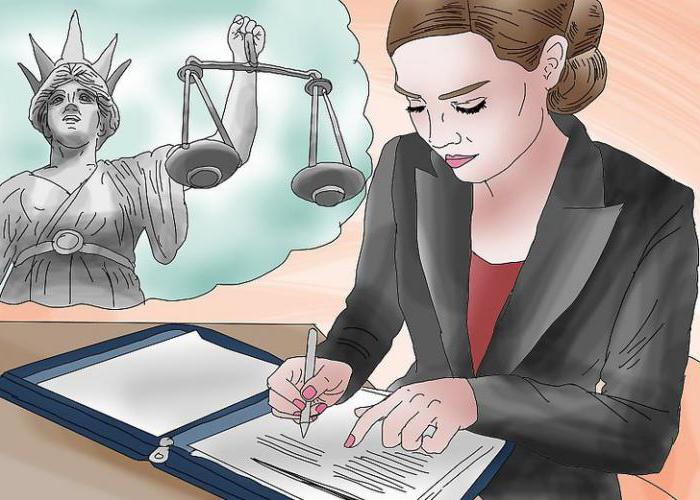In most cases, after the divorce of the spouses, minor children remain with their mother. But this fact does not relieve the father of the obligation to financially participate in the life of his child. Not all popes are responsible for the upbringing and maintenance of their son or daughter. Often after a divorce, not only meetings and phone calls, but also cash payments in favor of children become less and less, especially if the alimony does not have an official income or constantly changes the place of work. In this situation, ex-wives wonder if it is possible to deprive a father of parental rights for non-payment of alimony? Indeed, in the future, a negligent husband may demand cash from his children. 
What are the prospects?
A woman has the right to file a lawsuit in court. The court decision on the deprivation of the rights of the parent is one of the extreme measures of influence on the negligent parent, in particular, evading payment of maintenance for his minor child.
It is also important to note that this measure can be applied to any parent who does not fulfill his direct duties in relation to his own children.
Legal grounds
The deprivation of parental rights for non-payment of alimony is applied in strict accordance with the provisions of family law. SK RF defines several reasons. These include:
- malicious evasion of payment of the monetary maintenance (alimony) per child (children);
- abandonment of a newborn child immediately after birth;
- abuse of parental rights;
- abuse of the child (ren), including physical and psychological abuse;
- deprivation due to the parent being in heavy drug or alcohol addiction;
- deprivation due to a parent committing a serious criminal offense against children, another spouse, or other family members.
Often, the selected basis for deprivation of rights follows from another legal basis. 
For example, a father who is a chronic alcoholic, while not having a permanent place of work, and sometimes a place of residence, a priori becomes a malicious payer to his children.
In another case, for example, a father of a child with a drug addiction eventually becomes a danger not only to family members, but also to their own children. It is no secret that the desire to receive the coveted dose of a drug often prompts a person to commit a serious crime, in particular with regard to his relatives.
Deprivation of parental rights: features of the procedure
Regardless of the grounds, this measure is implemented only in court.
Consideration of such civil cases is carried out in the mandatory presence of a representative of the prosecutor's office and the guardianship authorities.
The initiator (plaintiff) of deprivation of parental rights of a father or mother may be:
- guardianship authorities and other organizations designed to protect the rights and interests of minors;
- prosecutor's office;
- one of the parents of the child.
What does denial of parenthood mean?
This concept includes the loss by one of the parents of the following rights:
- to take part in the educational and educational process of the child;
- protect the rights of a minor and represent his interests;
- to claim the child from other persons;
- apply to the courts to recover money from adult children;
- inherit the property of the deceased child (ren);
- restrict your child in anything by imposing a ban;
- confirm consent to the adoption of a child;
- receive social benefits provided for citizens with children.
With the complete loss of their rights, the deprived parent by law retains the obligation to pay the child (ren) monthly maintenance (alimony).
Effects on the malicious deadbeat
Despite the fact that the law provides for the deprivation of the parental rights of the father for non-payment of alimony, this fact must be proved in court.
To do this, you must have several conditions. In this case should be:
- The court decision that has entered into force to recover child support from the father of the child.
- Confirmation of the fact of malicious evasion of payment of maintenance.
As a rule, at the time of going to court with a statement about the deprivation of rights, the ex-wife is already exhausting all legal methods of influence on the ex-spouse.
These methods include the following set of measures to enforce the collection of cash:
- Appeal to the court for the recovery of a minor.
- The initiation of enforcement proceedings against the debtor and the enforcement of enforcement measures against him.
- Bringing the father of the child to administrative responsibility for evasion of payment of maintenance (possibly multiple).
- Criminal prosecution for malicious evasion of payment of maintenance (also possibly repeated).
Often women resort to threats of deprivation of parental rights for non-payment of alimony.
The concept of malicious evasion
In determining the degree of guilt of the debtor for malicious evasion of the maintenance of the child, the following arguments and grounds are accepted:
- the father of the child tries to hide, periodically changing his place of residence;
- the father of a minor hides his true income in various ways;
- does not pay maintenance for a minor for more than four consecutive months;
- in the absence of a permanent place of work, does not try to find a job or register as unemployed;
- with the formation of a significant debt on alimony;
- does not respond to actions of a coercive nature of officials of the Bailiff Service.
The listed reasons are legal grounds for bringing the debtor to criminal liability with all the ensuing consequences. 
Having on hand a confirmation of the “malice” of the father of the child, it will be much easier to prove his guilt in court when considering a case of depriving the father of parental rights for non-payment of alimony.
Statement of claim
When deciding to appeal to the court for his ex-husband, it is advisable to involve an experienced lawyer to draw up the application. Of considerable importance is the collection of evidence and the involvement of witnesses in court proceedings.
As an appendix, you can provide a detailed review of the bailiff on the progress of the enforcement proceedings against the father of the child, indicating the amount of debt at the time of preparation of the application, a copy of the verdicts and court orders on prosecuting the parent for criminal and administrative liability for evading payment of the content. 
In addition, it is mandatory to attach: a copy of the marriage certificate (if the marriage is not dissolved) or its dissolution, copies of the birth certificates of children, a copy of the passport.
Cases of deprivation of parental rights for non-payment of alimony are considered by federal (district) courts. Filing a statement of claim is subject to appropriate state duty. It must be paid before the application is submitted to the court, attaching the appropriate payment document.
Statement content
- The so-called cap of the claim for the deprivation of the father’s parental rights for non-payment of alimony contains information about the court and its address, data of the plaintiff and defendant with the address and contact phone number, information about interested parties involved in the trial (guardianship authority and prosecutor's office). When indicating the latter, it is necessary to write down the full name of the state body and the address of its location.
- Following the name of the document (application for the deprivation of parental rights), the plaintiff must reasonably describe the situation that led to the need to apply such a measure to the father of the child as deprivation of the rights of the parent. This part of the claim must necessarily contain a legal basis for presenting such claims with appropriate references to the norms of family law, as well as a mention of all available evidence.
The descriptive and motivating parts of the statement are the most informative, so try to describe the situation in more detail and more accurately.
- The operative part of the application includes specific claims of the plaintiff regarding the deprivation of the rights of the parent of the father of the child.
- The application must be signed by the applicant. Next is the date of filing the document with the court.
Place of application
The above category of civil cases is considered at the place of residence of the defendant (father of the child), therefore, if the ex-husband lives in another city, the application should be submitted to the court at the appropriate location of the defendant.
In addition, guardianship authorities and prosecutors located at the place of residence of the father of the child are involved in the case. In this case, all materials collected by these authorities at the plaintiff's place of residence in relation to the father of the child are transferred to the relevant state bodies at the location of the defendant.
Deprivation of parental rights - what you need to know?
Such cases, in particular those initiated by the mother of the child on the basis of malicious evasion from paying maintenance for a minor, require the preparation of an exhaustive evidence base. Just a reference to family law would not be enough. Well, if the whole process will be supervised by an experienced lawyer. In the absence of such an opportunity, a woman must, before filing a lawsuit, thoroughly familiarize herself with the procedure for deprivation of parental rights, a description of each stage of the proceedings, and collect a good evidence base.
In this case, the documents received from the bailiff need to be supported by evidence that the father completely avoided participating in the upbringing, education and maintenance of his child. To confirm this fact, it is allowed to attract witnesses with sufficient information.
Arbitrage practice
The outcome of the trial on the deprivation of the father’s parental rights for non-payment of alimony will largely depend on the current judicial practice in the region to consider such civil cases. It is possible that this or that statement will become a kind of precedent. Indeed, plaintiffs in cases of deprivation of rights are most often the bodies of guardianship and trusteeship.
Not many women decide to deprive their former or current spouse of the rights of the parent only on the basis of evading payment of maintenance for the child. Before applying to the court with similar claims, a woman should decide what she needs it for.
The very fact of deprivation of the rights of the parent will not play a significant role in the life of the child, unless the father poses a real threat to the future or present of the minor. In particular, in terms of harm to health or threat to life, as well as in the context of a spoiled biography.
Since the obligation to pay financial remuneration remains with the father until the child reaches the age of majority, and the payment of the resulting debt - until its full repayment, depriving the parent of the rights in the complete absence of the conscience of the ex-husband is unlikely to somehow affect his integrity.
Therefore, before depriving parents of their rights for non-payment of alimony to a negligent father, it is worth weighing all the pros and cons and making an informed decision.